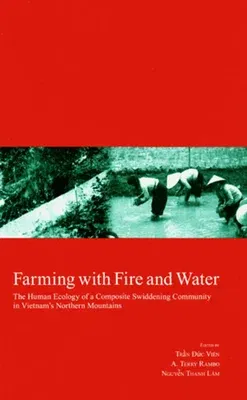Farming with Fire and Water: The Human Ecology of a Composite Swiddening Community in Vietnam's Northern Mountainsvolume 18Hardcover, 28 August 2009

Qty
1
Turbo
Ships in 2 - 3 days
In Stock
Free Delivery
Cash on Delivery
15 Days
Free Returns
Secure Checkout

Part of Series
Kyoto Area Studies on Asia
Print Length
456 pages
Language
English
Publisher
Trans Pacific Press
Date Published
28 Aug 2009
ISBN-10
1920901299
ISBN-13
9781920901295
Description
Product Details
Book Format:
Hardcover
Country of Origin:
US
Date Published:
28 August 2009
ISBN-10:
1920901299
ISBN-13:
9781920901295
Language:
English
Pages:
456
Publisher:
Series: